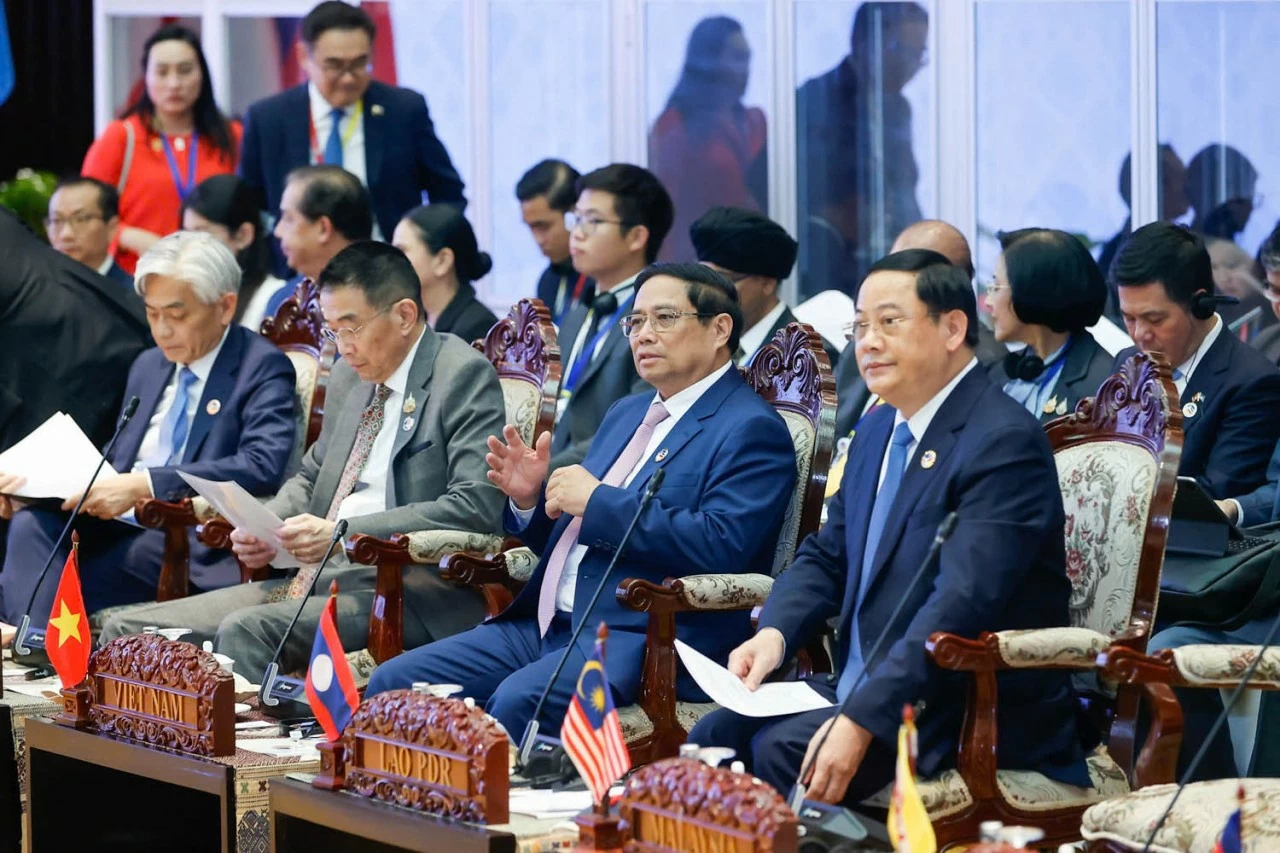 |
| Prime Minister Pham Minh Chinh speaks at a dialogue session with representatives of the ASEAN Inter-Parliamentary Assembly (AIPA), the ASEAN Business Advisory Council (ASEAN-BAC) and ASEAN Youth. (Photo: Dinh Bac) |
AIPA member parliaments affirmed that ASEAN and AIPA need to strengthen coordination, promote their connecting and leading role in regional cooperation processes. In that spirit, member parliaments proposed to enhance dialogue and coordination between governments and parliaments in the process of building the Community, concretize ASEAN's commitments through legal frameworks, create favorable conditions for economic growth, expand cooperation in new areas such as digital economy, clean energy, innovation, promote inclusive policies, narrow the development gap, especially in remote areas.
Governments and parliaments need to continue to promote ASEAN's central role in regional peace and stability, enhance practical cooperation between ASEAN and its partners, uphold ASEAN's principles and standards of conduct, and comply with international law, including the 1982 United Nations Convention on the Law of the Sea (UNCLOS).
ASEAN-BAC delegates shared that ASEAN has great potential for growth and leadership in new industries such as semiconductors, and deeper participation in the global semiconductor value chain. Accordingly, ASEAN-BAC recommended strengthening public-private cooperation, encouraging investment in research and development, especially artificial intelligence, coordinating to remove barriers to trade and investment, and strengthening intellectual property protection.
Emphasizing the great potential of the ASEAN Digital Economy Framework Agreement, ASEAN-BAC recommended promoting innovation cooperation in the region, creating free and reliable data flows, training high-quality human resources and investing in digital infrastructure, contributing to promoting digital integration and digital economic growth in the region.
In the field of green transformation, ASEAN-BAC delegates emphasized the need to decarbonize industries, proposing that ASEAN countries coordinate and harmonize policies, streamline processes and minimize operating costs for businesses.
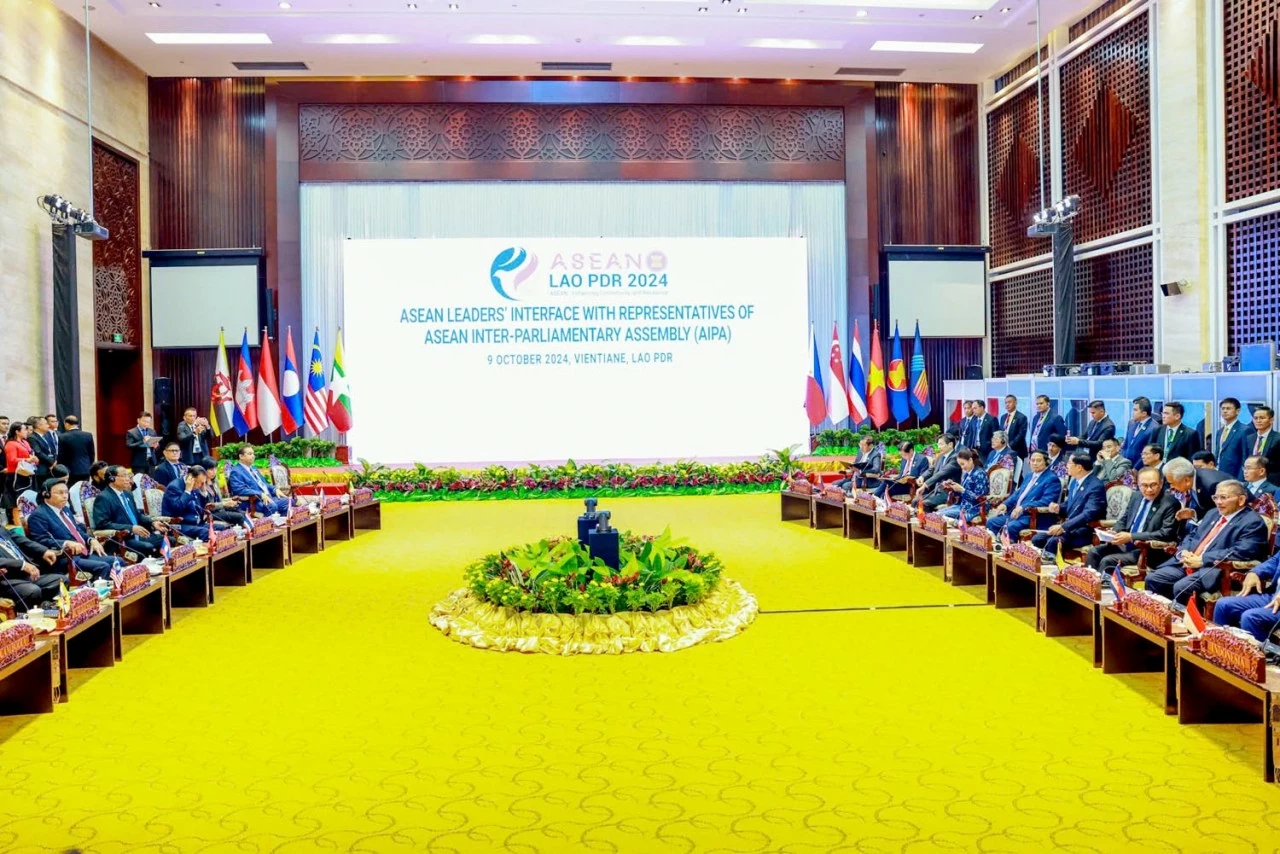 |
| Overview of the dialogue session between ASEAN leaders and representatives of the ASEAN Inter-Parliamentary Assembly (AIPA). (Photo: Dinh Bac) |
ASEAN youth representatives expressed their desire to participate and contribute to the process of building the Community, nurturing and promoting the spirit of civic responsibility among young people. ASEAN young businesses can play a pioneering role, bringing new and innovative ideas to the community, the region and the world. The youth also wish to be facilitated to participate in responding to emerging challenges such as climate change and natural disasters.
Highlighting the role of education and training in the current context, youth representatives recommended that leaders of countries continue to pay attention to, develop and implement quality, comprehensive education and training programs, ensuring access for all. Youth representatives also proposed expanding cultural exchange programs and connecting youth to enhance understanding and friendship.
Speaking at the dialogue sessions, Prime Minister Pham Minh Chinh highly appreciated the role and participation of member parliaments, businesses and youth, contributing to the implementation of ASEAN's priorities and focuses. Strengthening ASEAN solidarity is an objective requirement, a strategic choice and a top priority, and it is necessary to enhance ASEAN's adaptability to major global and people-to-people issues such as war and peace, climate change, resource depletion and population aging.
Welcoming this year's AIPA theme on "The Role of Parliaments in Enhancing ASEAN's Connectivity and Inclusive Growth" which complements and is similar to ASEAN's theme of "Promoting Connectivity and Resilience" , the Prime Minister suggested that countries need to have specific directions and take drastic actions, working towards the goal of building a connected, resilient, sustainable and inclusive ASEAN Community.
Along with traditional growth drivers, parliaments and governments need to work together to promote new growth drivers such as the digital economy, sharing economy, circular economy, knowledge economy, as well as other emerging industries such as artificial intelligence, cloud computing, Internet of Things, etc.
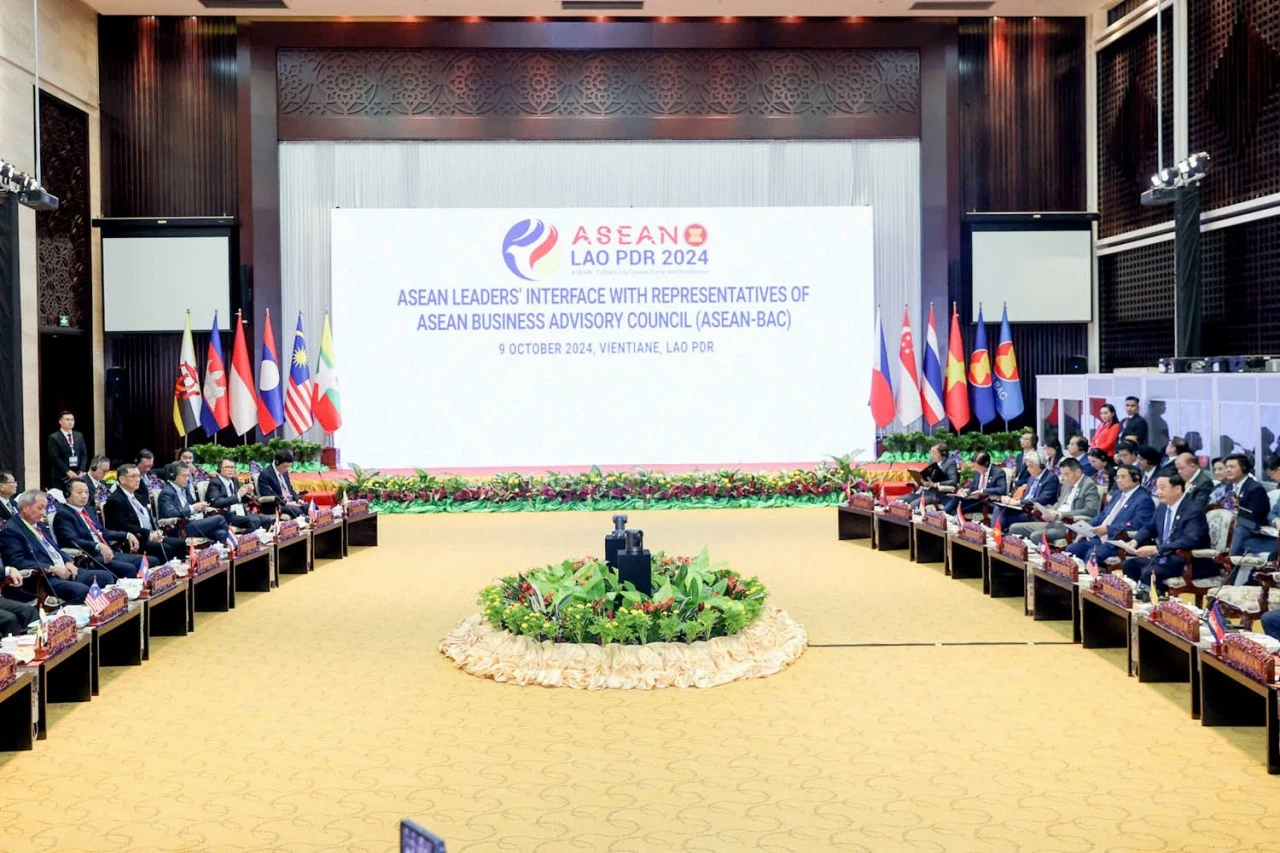 |
| Leaders of ASEAN countries attend a dialogue session with representatives of the ASEAN Business Advisory Council (ASEAN-BAC). (Photo: Dinh Bac) |
Emphasizing that institutions are both the driving force and the resource for rapid and sustainable development, the Prime Minister asked member parliaments to unite and support each other in building institutions, contributing to ensuring self-reliance, connectivity, comprehensiveness and inclusiveness of development. The Prime Minister also asked parliaments to promote their supreme supervisory role over agencies, including the government, creating more favorable conditions for governments to participate and effectively contribute to the development and self-reliance goals of each country.
Expressing his delight at the economic achievements in the region, the Prime Minister highly appreciated the contributions of the business community and welcomed the theme of “Connecting Digital Trade” in 2025 of the ASEAN-BAC Chair Malaysia.
The Prime Minister suggested that ASEAN-BAC increase its participation in solving major regional issues such as climate change, environment, population aging, resource depletion, and promote cooperation in developing the digital economy and green economy.
Strengthening the connection between the government and businesses, the Prime Minister emphasized that businesses need to promote the pioneering spirit, innovate, and provide policy advice to the government on problems as well as issues related to institutions, infrastructure and human resources, contributing to creating an open investment and business environment, opening up opportunities for businesses to participate and contribute more to the development of the region and each country.
Affirming the importance of business connectivity, the Prime Minister proposed increasing resource mobilization through public-private partnership, technology transfer, smart governance connectivity, and support for human resource training...
The Prime Minister emphasized the role of enterprises in ensuring social security, contributing to the goal of leaving no one behind. Sharing Vietnam's efforts in this field, the Prime Minister affirmed that social justice and the environment will not be sacrificed for economic growth alone. A sustainable and inclusive ASEAN cannot be without the role and contribution of enterprises.
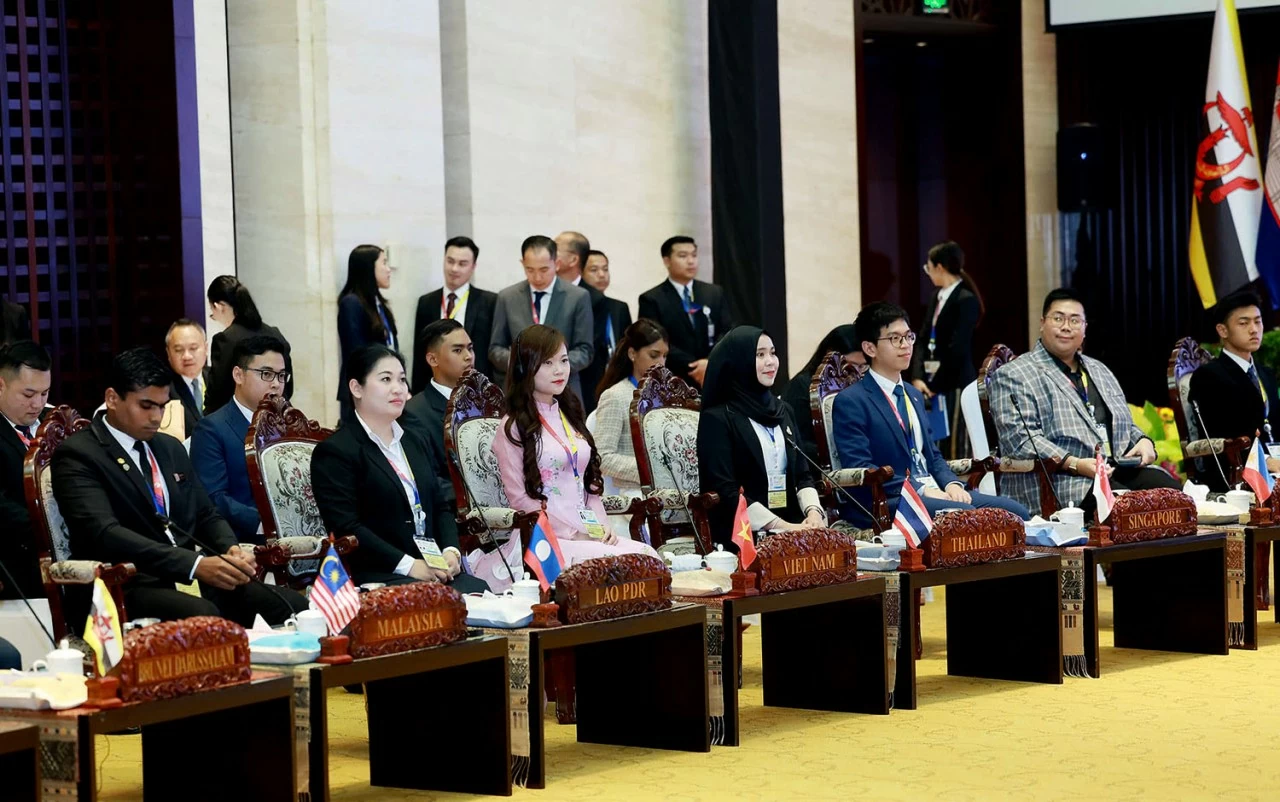 |
| ASEAN leaders attend a dialogue session with ASEAN Youth representatives. (Photo: Dinh Bac) |
At the dialogue session with young people, Vietnam and other countries emphasized that young people are a great force, a valuable asset and a hope for the future of the region. The document of the United Nations Future Summit last September also emphasized that “the full, effective, safe and meaningful participation of young people is essential to maintaining and promoting international peace and security”.
Affirming the proactive role of youth in building an innovative and developed ASEAN Community, Vietnam proposed three pioneers in adapting to new global trends such as digital transformation and green transformation, in seeking solutions to regional social issues such as climate change, population aging, environmental pollution, and in proposing breakthrough ideas towards the goal of building an ASEAN Community in the future.
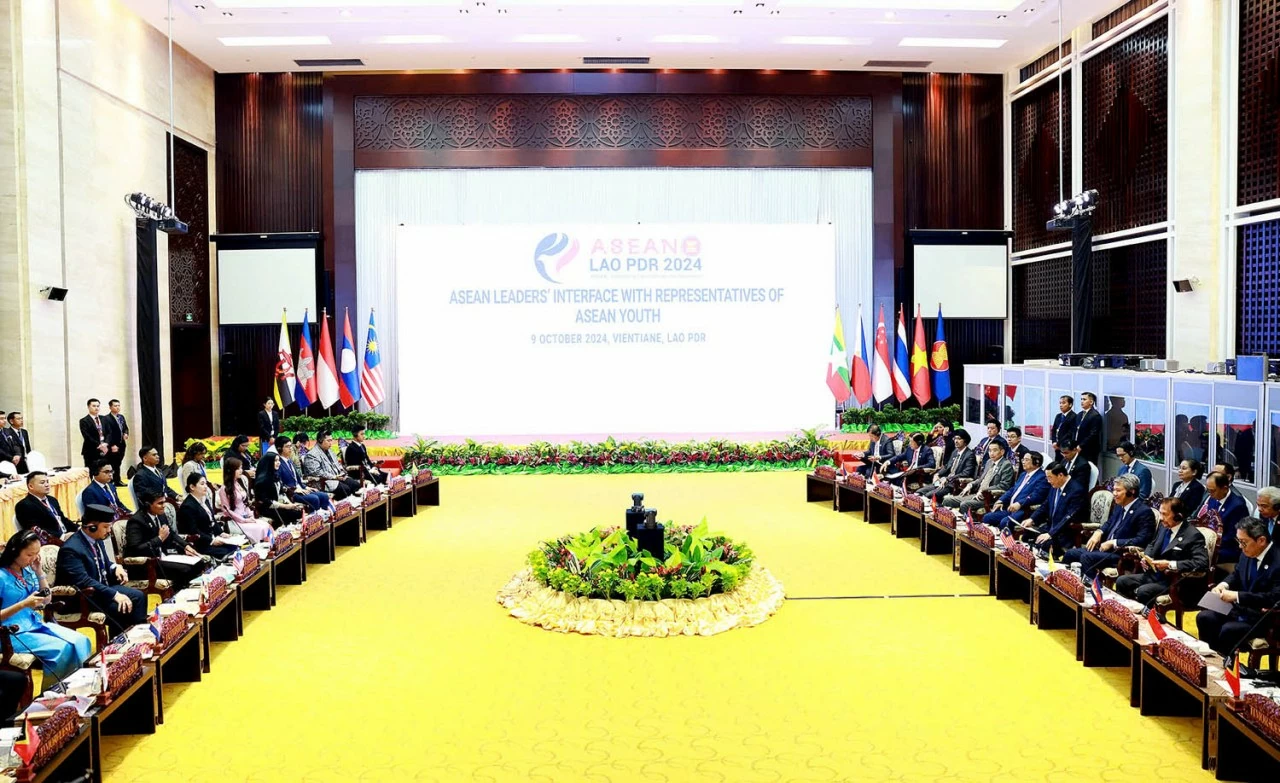 |
| At the dialogue session with youth, Vietnam and other countries emphasized that youth are a great force, valuable asset and hope for the future of the region. |
On the morning of October 10, Prime Minister Pham Minh Chinh will join leaders of ASEAN countries and partners to attend the 27th ASEAN-China Summit, the 25th ASEAN-Korea Summit and the 27th ASEAN-Japan Summit.
Source








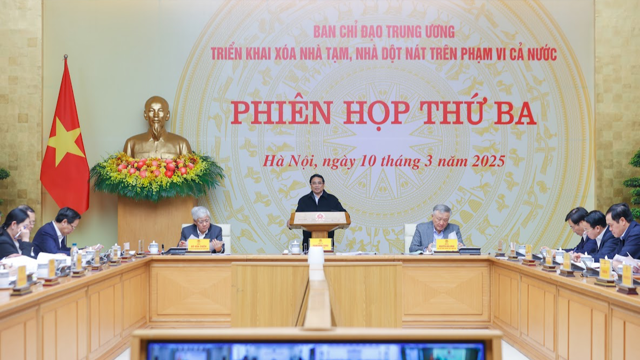

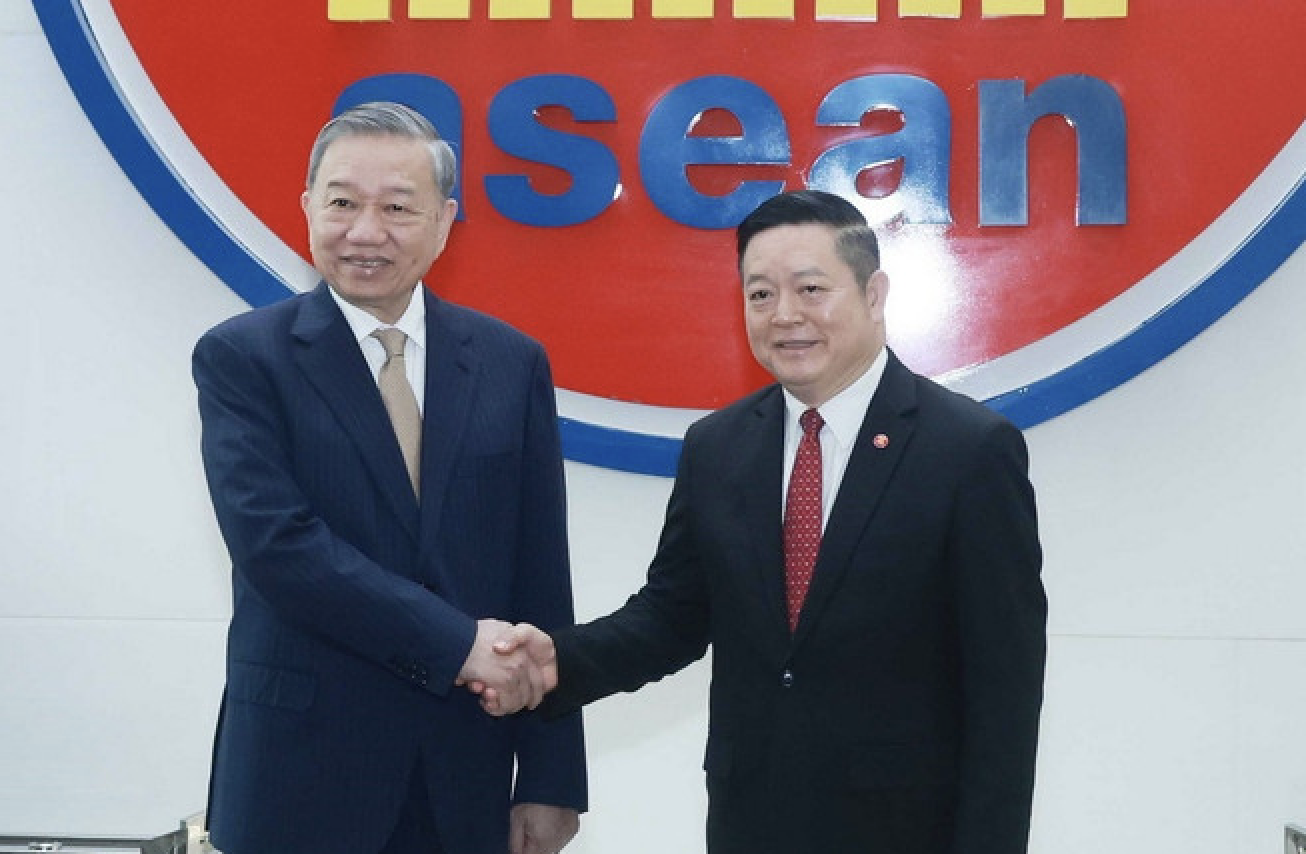

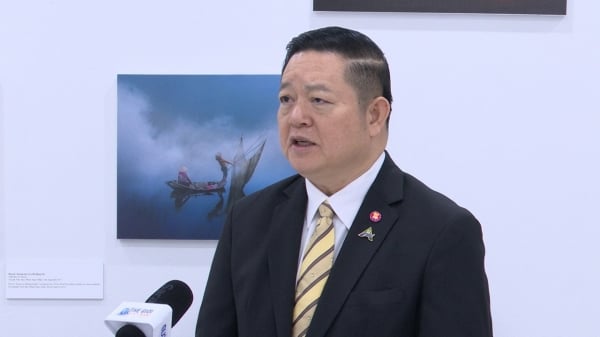
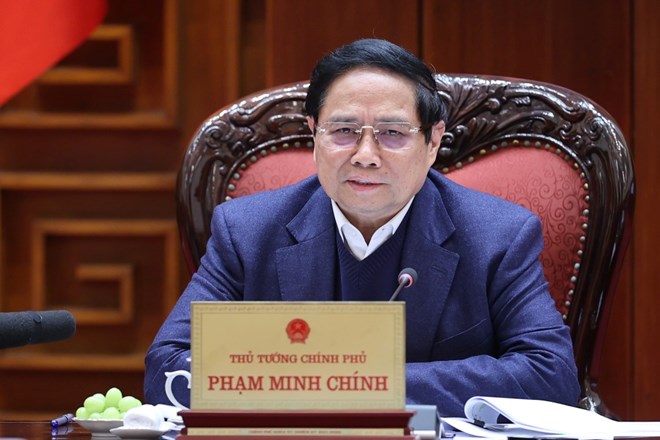

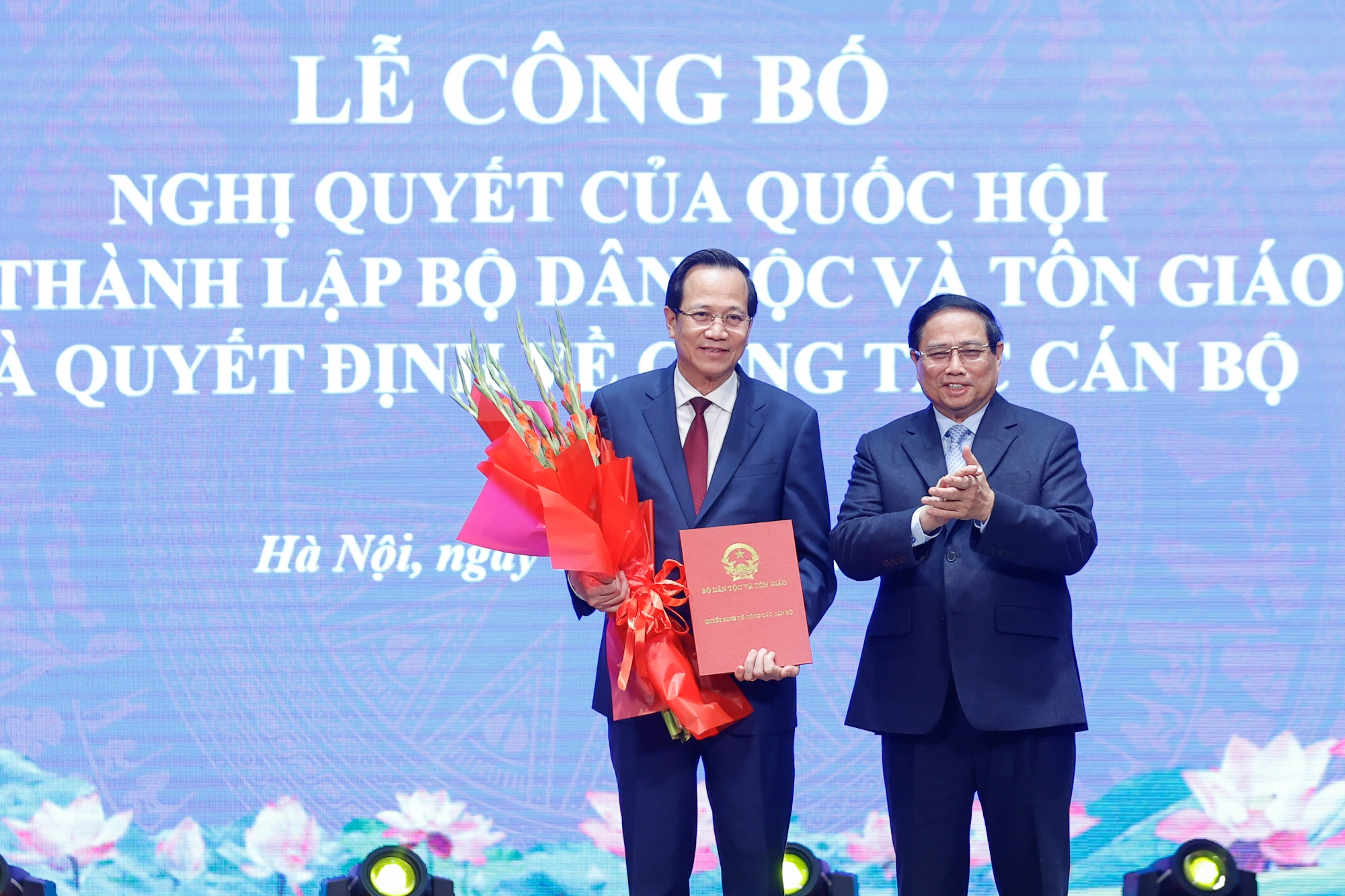

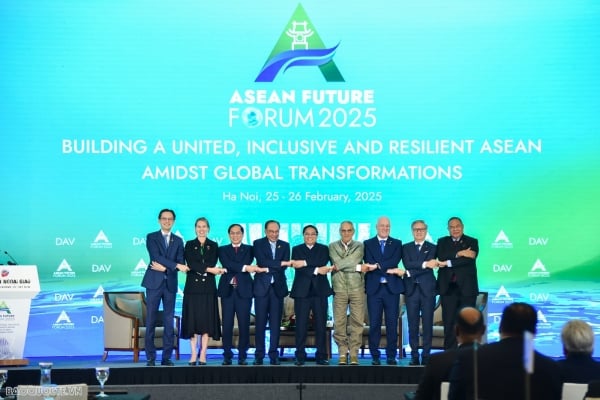








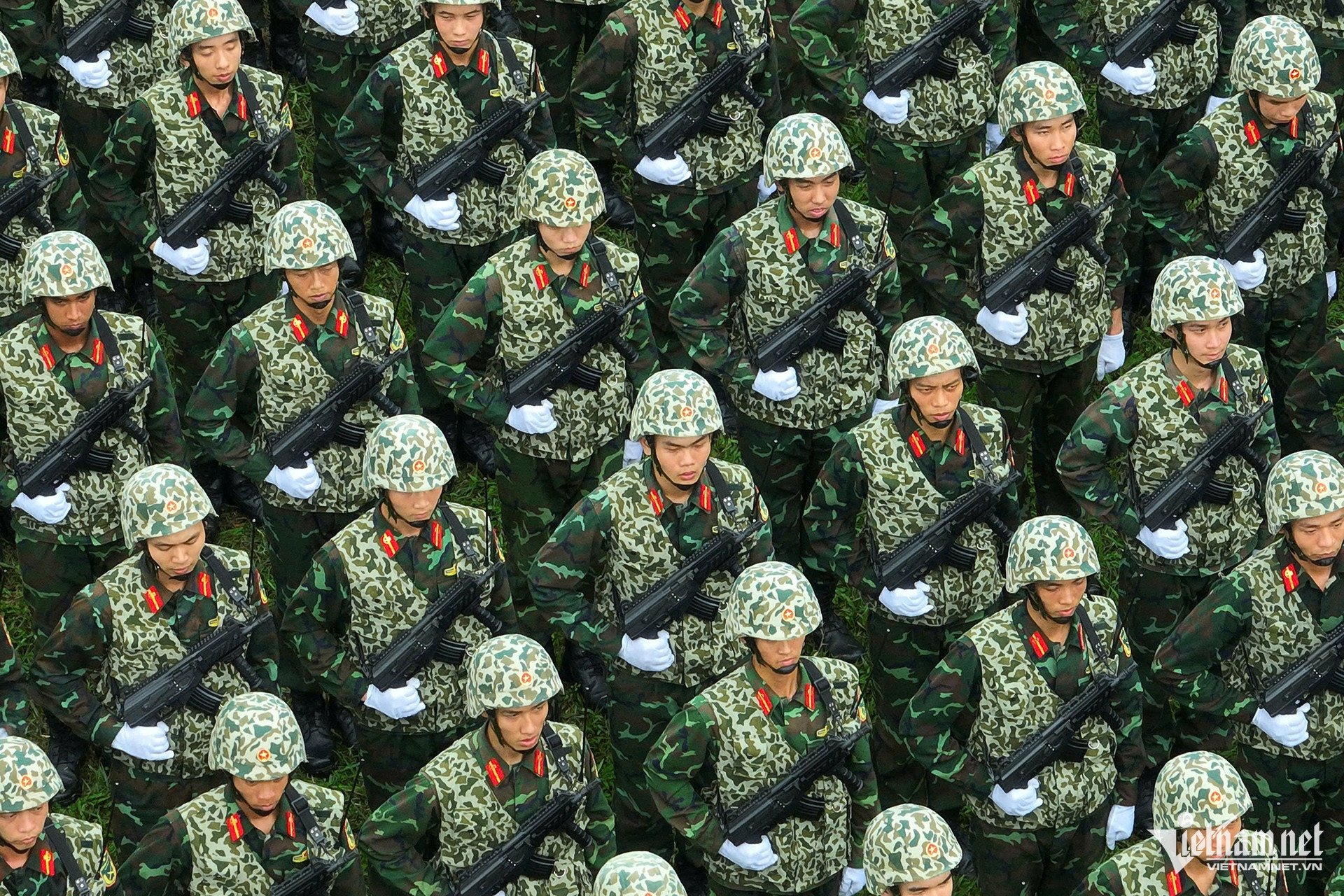

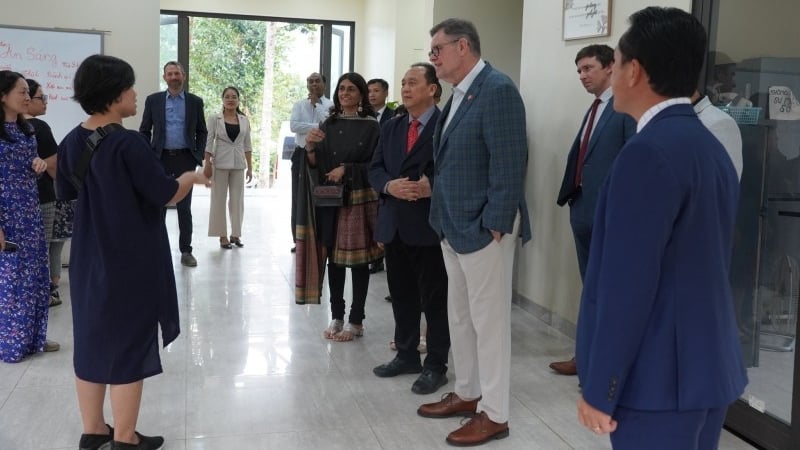
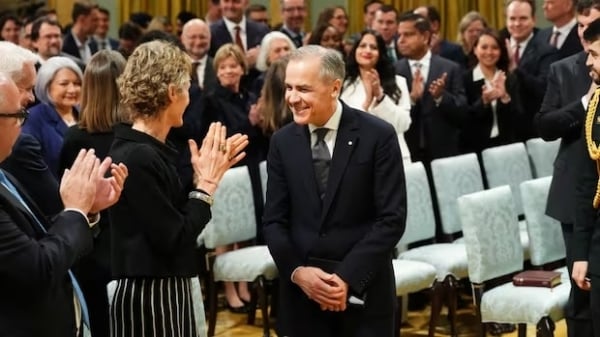


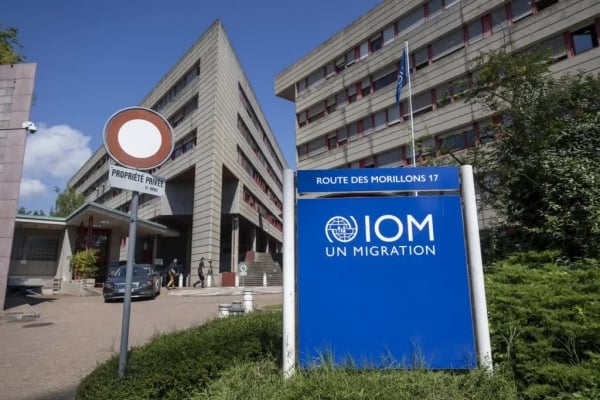













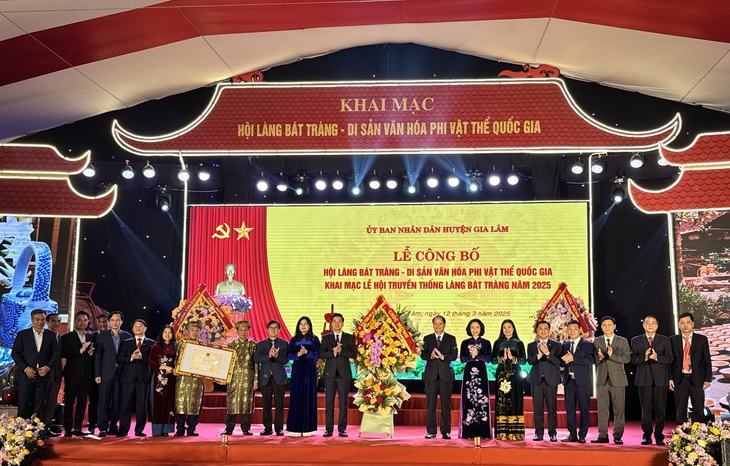

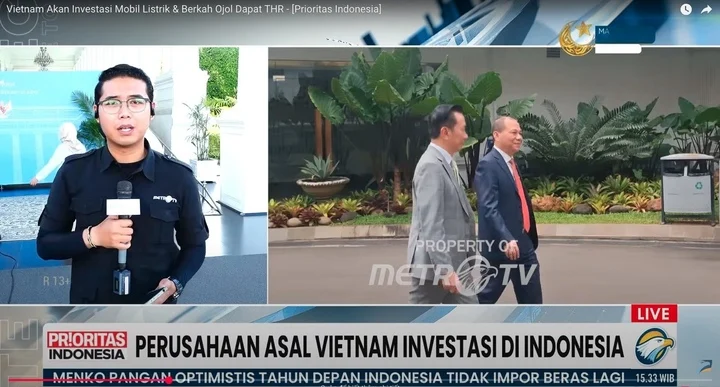

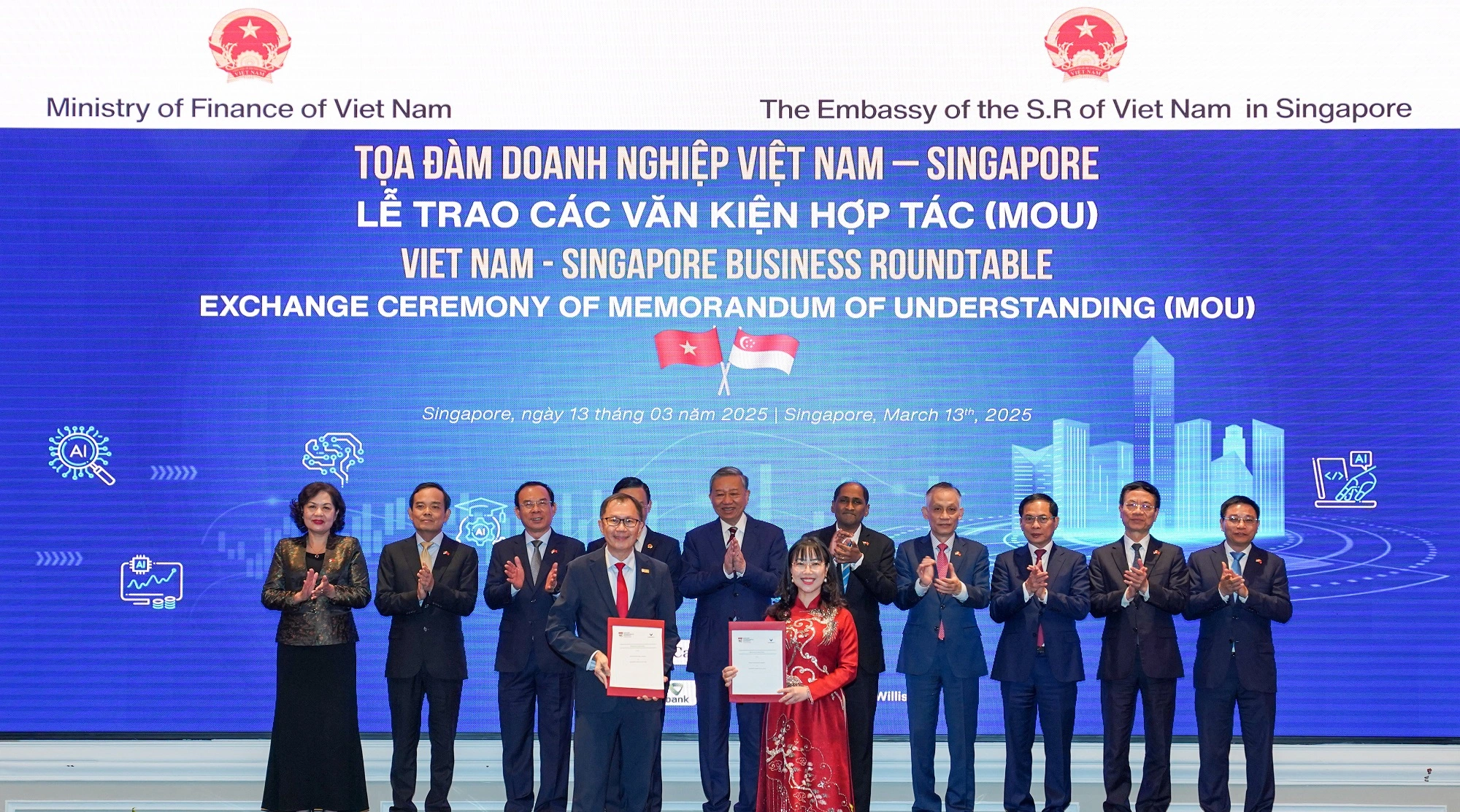

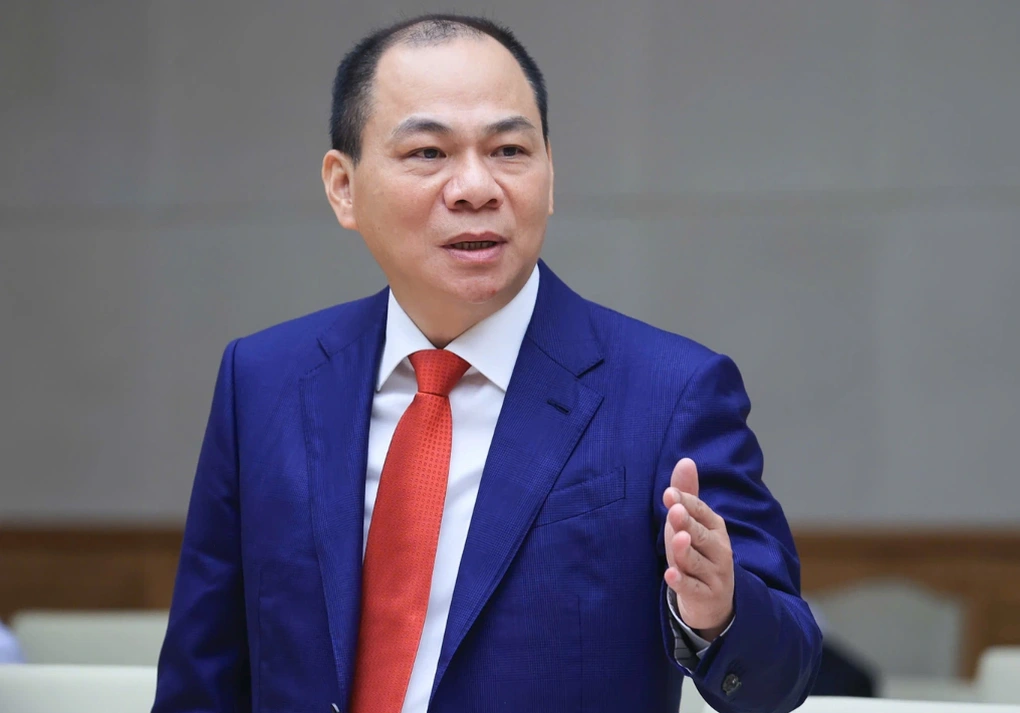

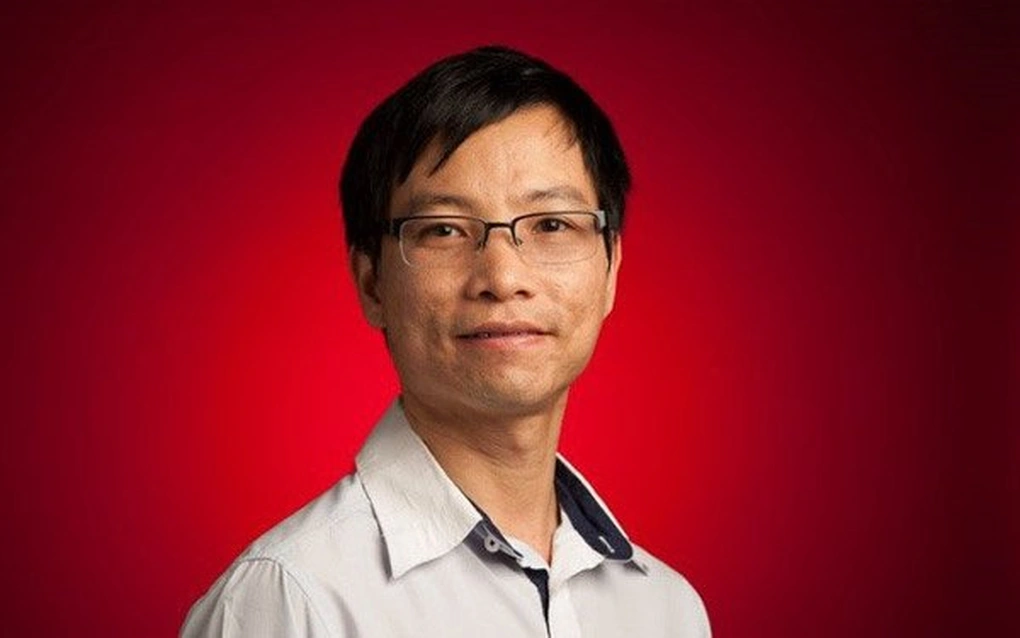
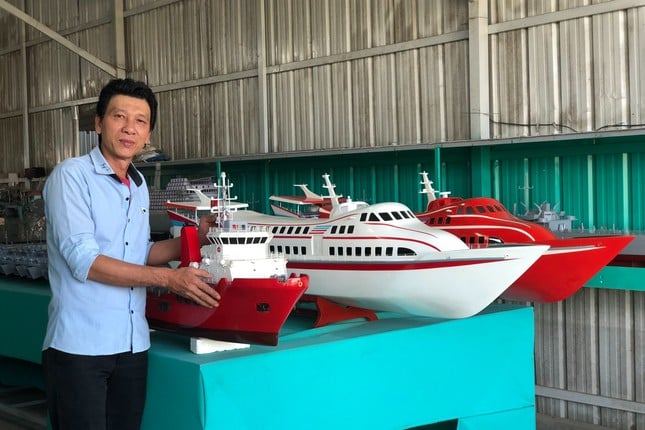




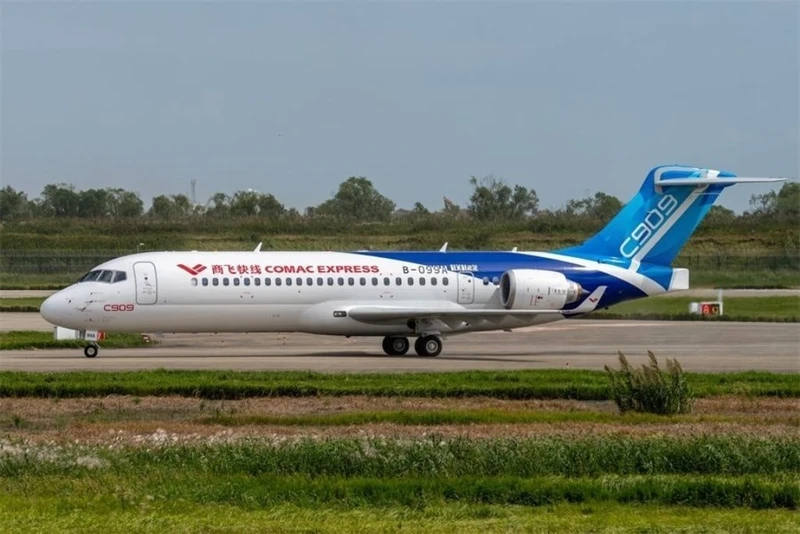


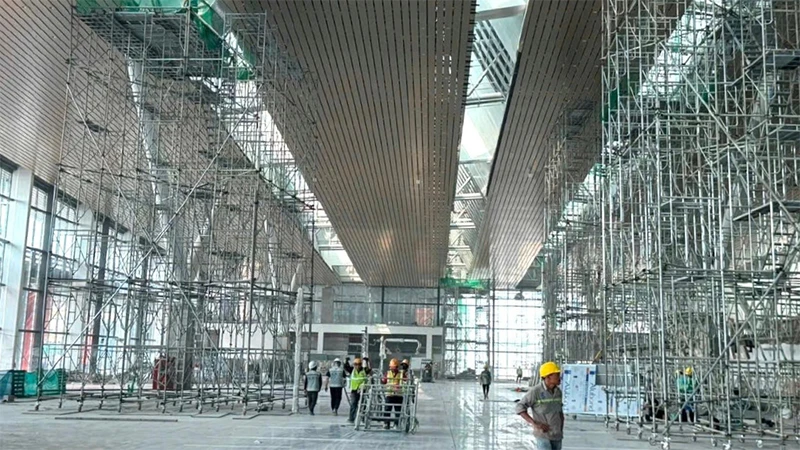










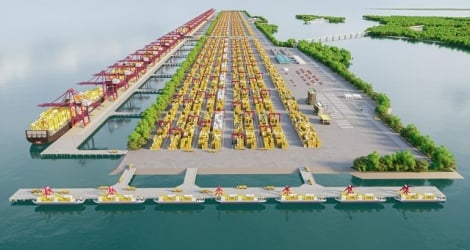


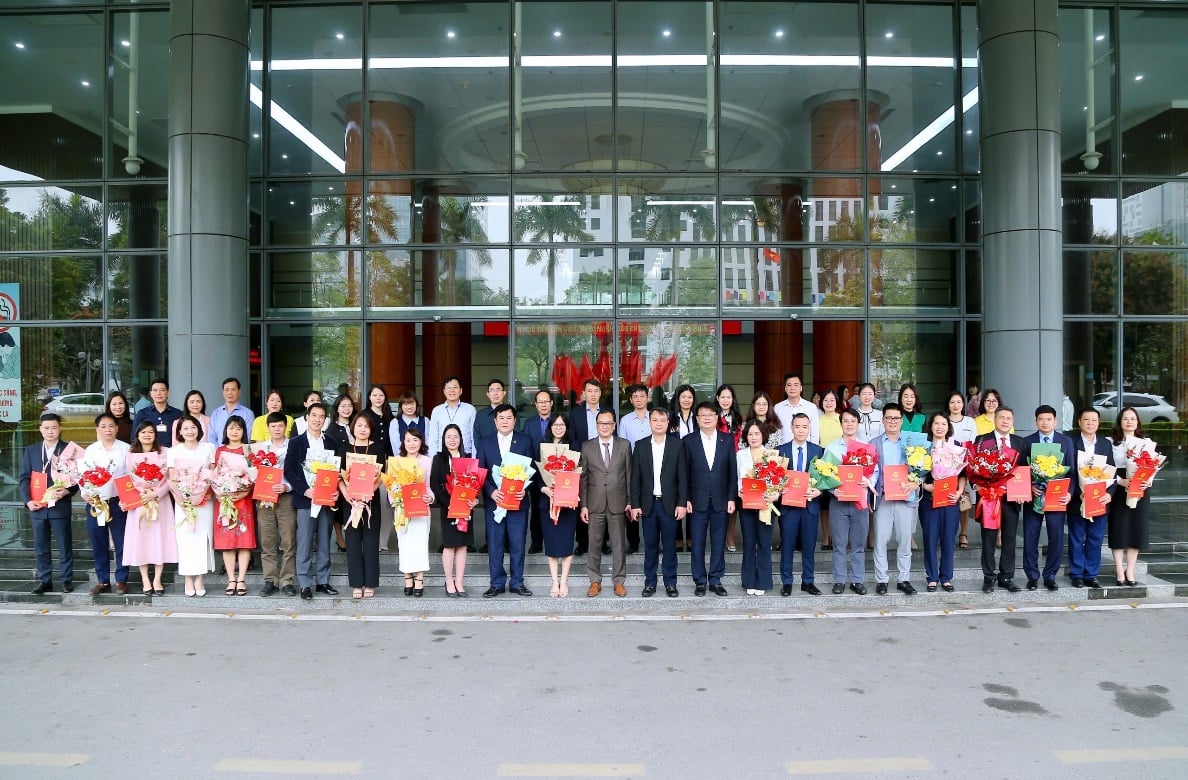


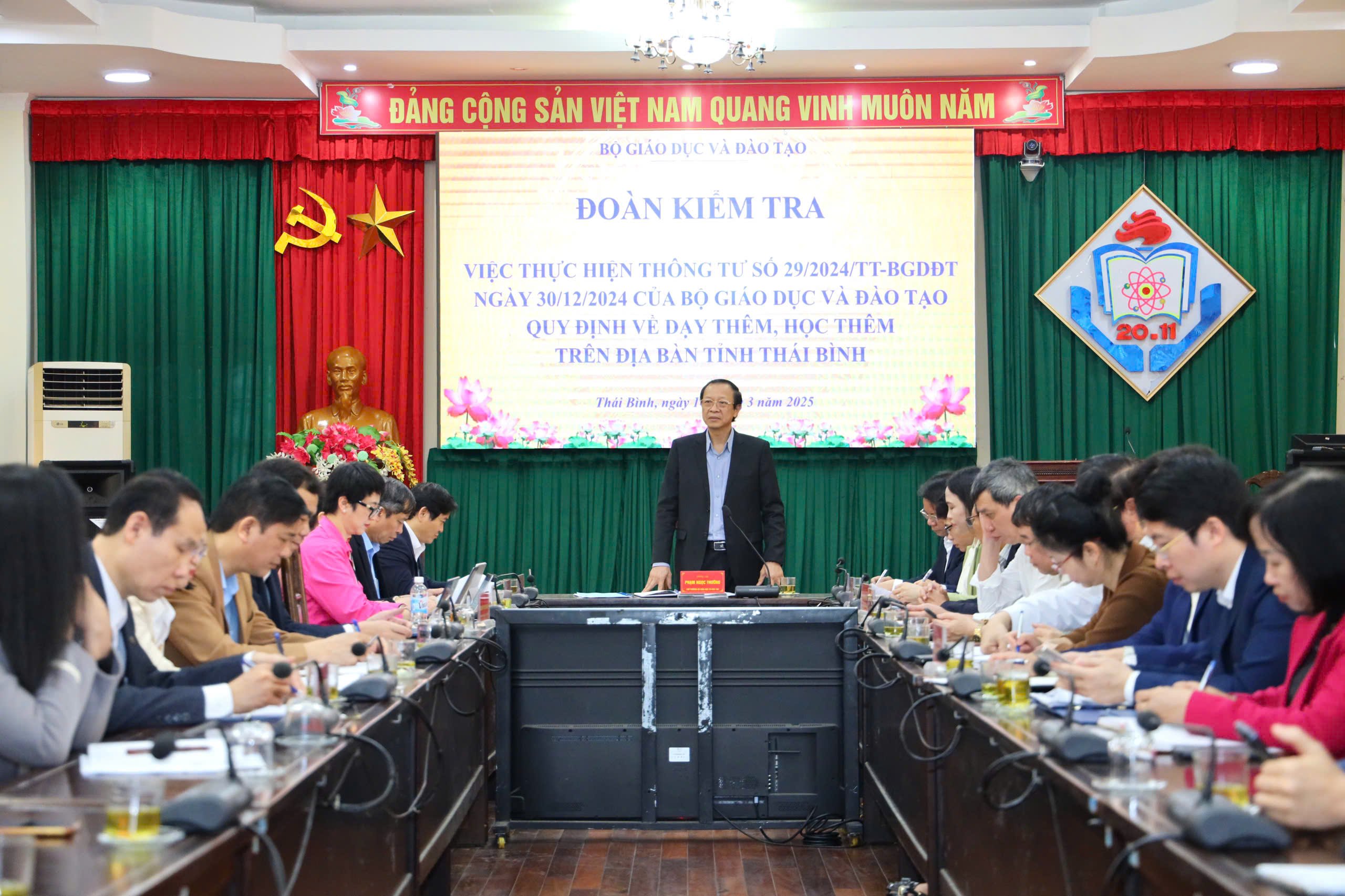

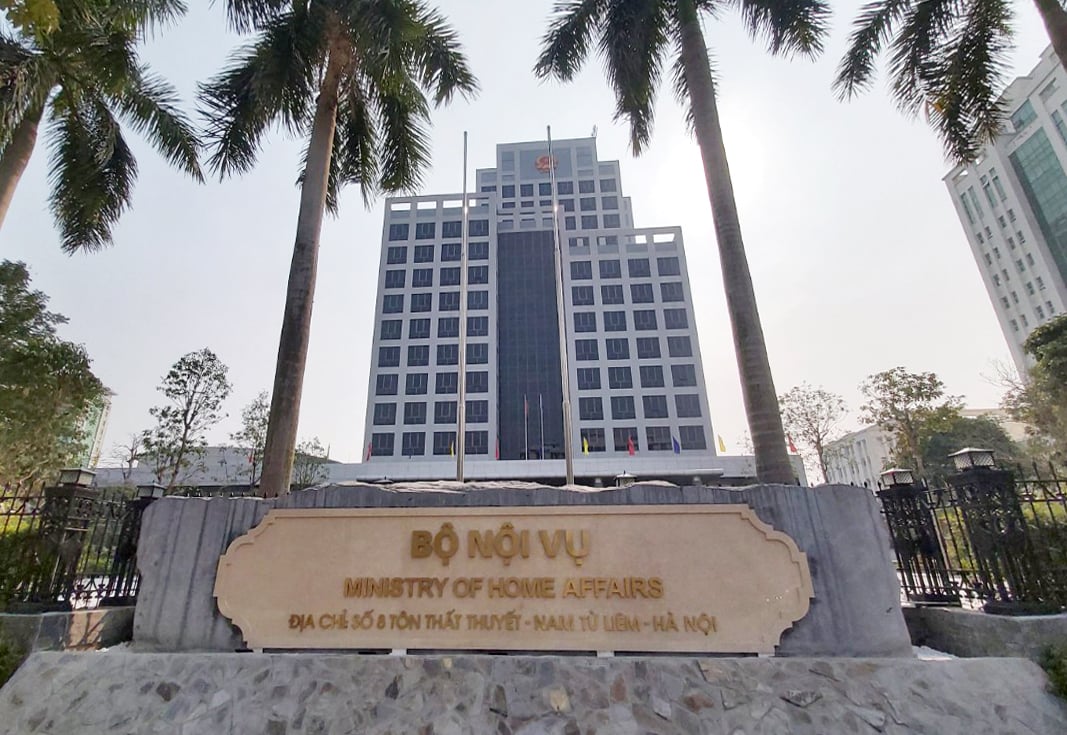





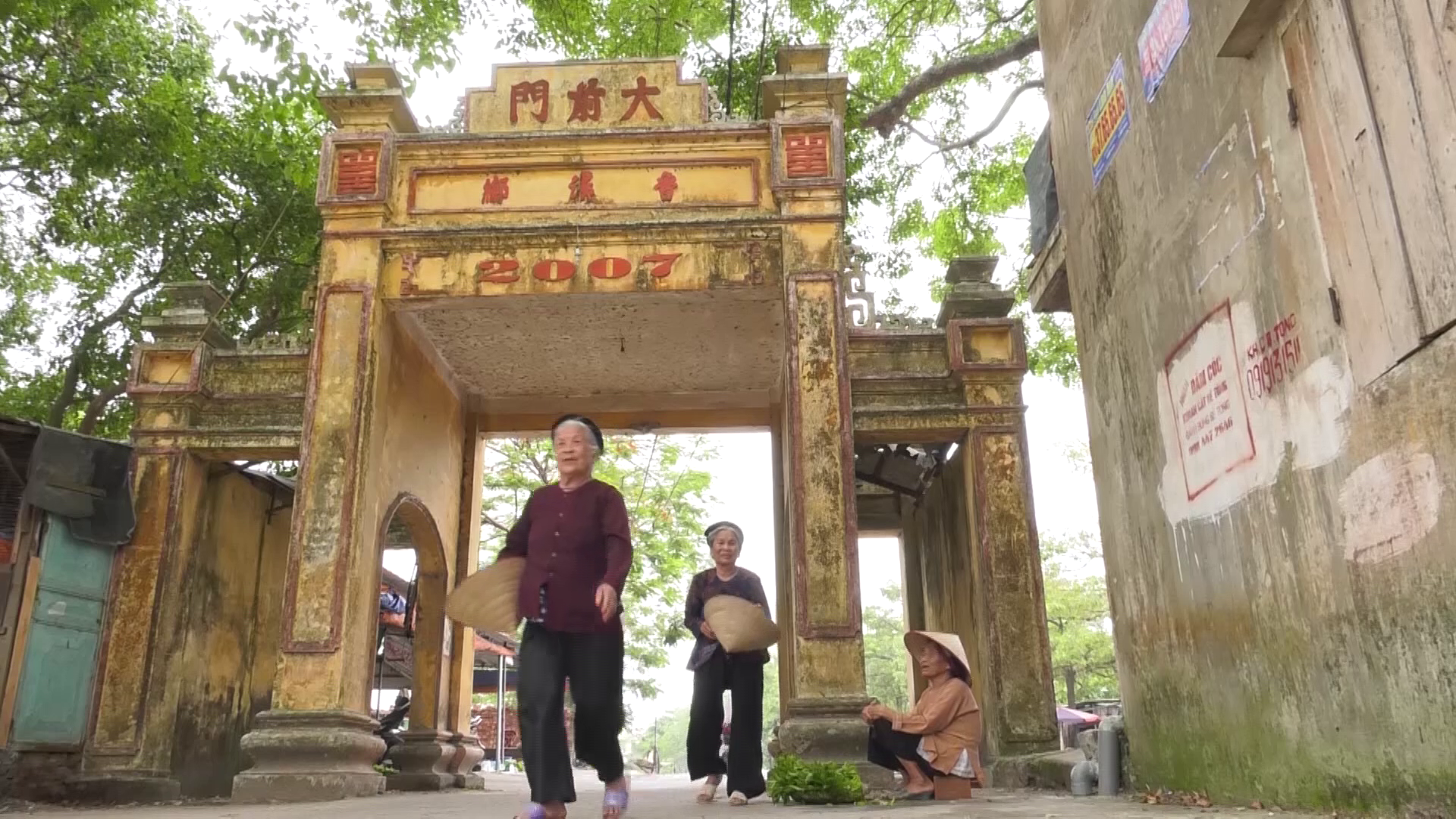

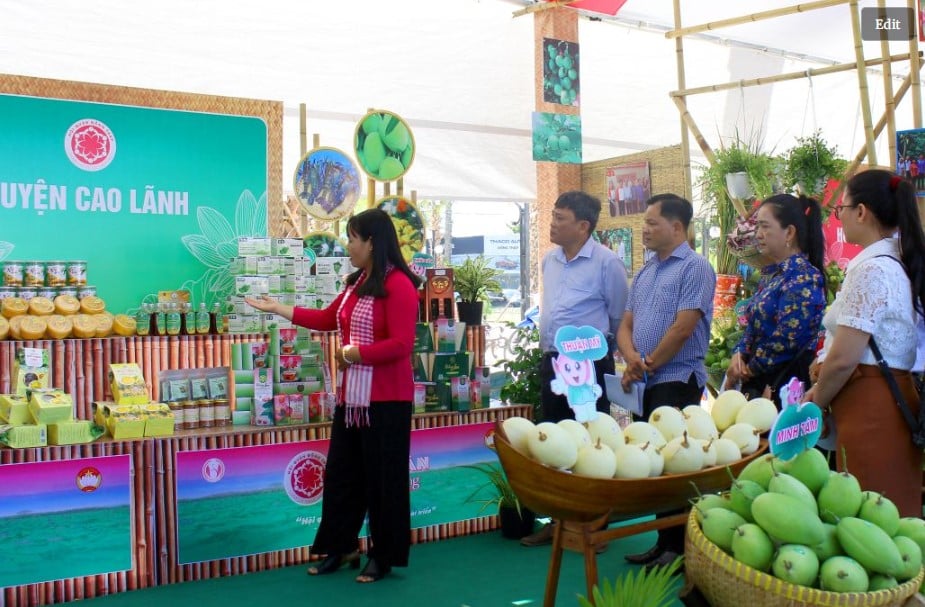





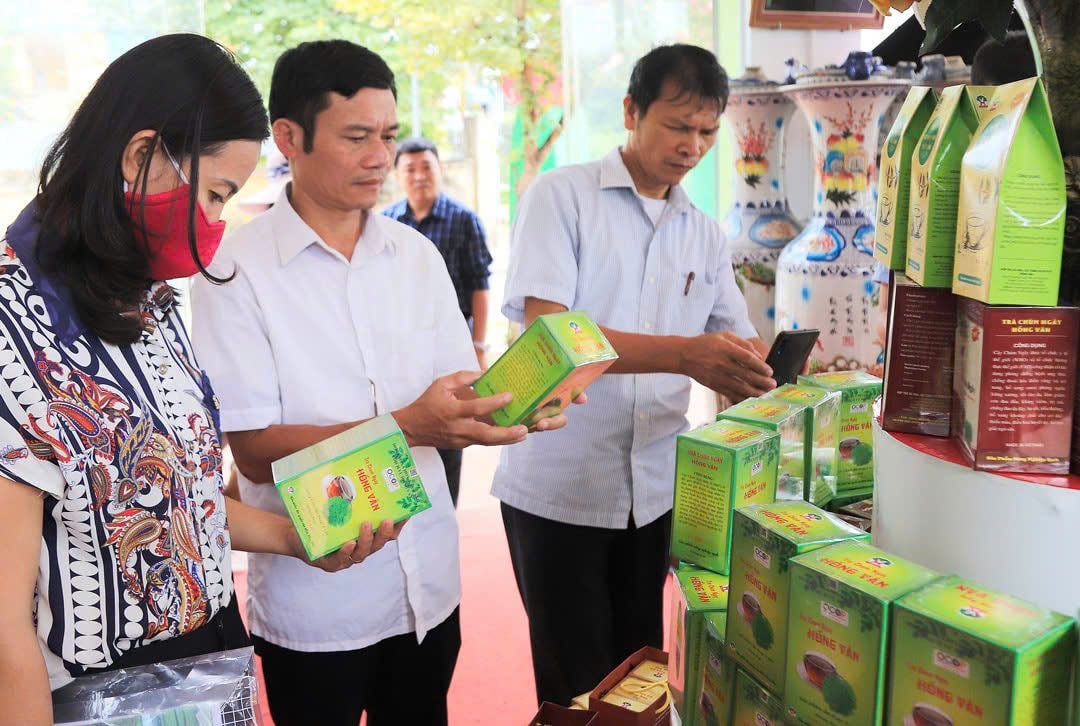
Comment (0)